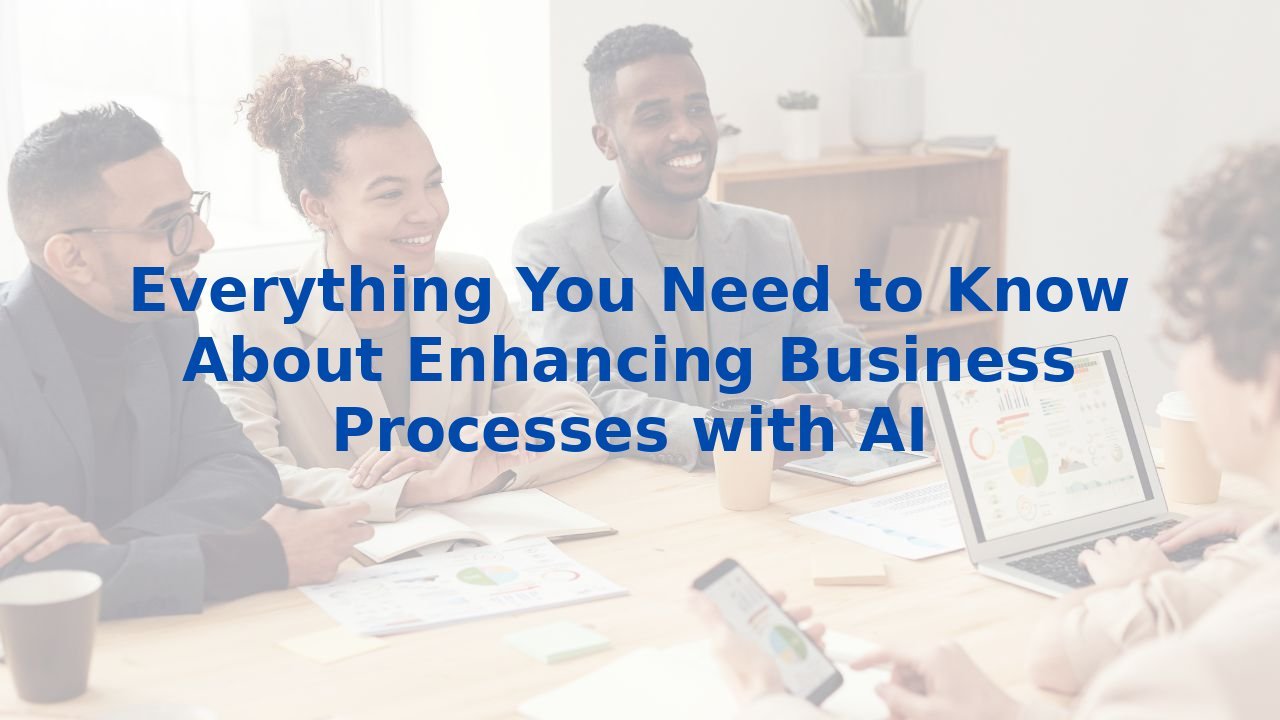Everything You Need to Know About Enhancing Business Processes with AI
Everything You Need to Know About Enhancing Business Processes with AI
Business process management (BPM) is at the heart of every successful organization. It's the practice that ensures operations run smoothly, maximizing efficiency and driving growth. As we navigate the rapidly evolving landscape of the digital age, the integration of artificial intelligence (AI) has emerged as a game-changer for refining these processes. In this piece, we'll explore how AI can enhance BPM, the resulting benefits for organizations, and the critical importance of training employees for effective AI integration.
Enhancing Business Processes with AI
AI has the power to reshape BPM in a dramatic way, utilizing technology to build, analyze, automate, and optimize processes. Here’s how these capabilities come into play:
- Data Analysis: The vast amounts of data generated daily can be overwhelming. AI excels at rapidly sifting through this data to extract trends, predict outcomes, and identify root causes—all integral for better decision-making. By enabling faster data analysis, businesses can shift from reactive to proactive strategies.
- Process Building: The traditional approach to designing processes can be laborious and time-consuming. AI simplifies this by automatically creating workflows based on user-defined parameters, significantly reducing the effort needed to establish new operational avenues.
- Automation: Routine, repetitive tasks are ripe for automation. AI can handle numerous functions, particularly in HR, sales, and customer service, freeing up human resources for more strategic endeavors.
Benefits of AI in Business Process Management
The implementation of AI into BPM is not just a technological upgrade; it's a pathway to numerous organizational benefits:
- Process Discovery: Utilizing advanced techniques such as process mining and natural language processing, AI reveals existing processes, uncovering inefficiencies that may otherwise slip through the cracks. This insight allows for swift rectification and optimization.
- Process Optimization: Continuous improvement is crucial for maintaining competitiveness. With AI, organizations can receive ongoing feedback and data-driven recommendations, leading to processes that align with evolving business objectives and compliance standards.
- Risk Identification: AI's anomaly detection capabilities help identify risks before they escalate, maintaining process integrity and supporting compliance initiatives proactively.
- Decision Support: AI doesn't just automate; it enhances decision-making by providing comprehensive data, simulating various scenarios, and highlighting optimal paths forward. This feature transforms how leaders approach challenges and uncertainties.
AI Applications Across Business Processes
The versatility of AI applications is broad, capable of enhancing core, support, and longtail business processes:
- Core Processes: From production to customer support, AI-driven automation can significantly enhance every step. By analyzing historical data, AI can predict outcomes and support process simulations that refine strategies.
- Support Processes: Tasks such as IT service management and document processing can benefit immensely from AI. Automating these functions not only reduces manual entry but also improves accuracy, leading to more reliable data flows.
- Longtail Processes: Many intricate tasks—like vendor approval or contractor management—often involve complex interactions. AI models these dependencies, enabling effective analysis and timely decision-making.
The Importance of Training Employees for AI
The integration of AI is only as valuable as the people behind it. Training employees to leverage AI tools effectively is crucial for maximizing their benefits:
- Understanding AI Tools: Employees equipped with the knowledge of AI functionalities are better positioned to leverage these capabilities in their work, which can significantly enhance the organization's output.
- Adapting to Change: The continuously evolving landscape of AI calls for adaptability. Training programs can facilitate a smoother transition as employees integrate AI into their existing roles.
- Enhancing Decision-Making: A well-trained workforce can interpret AI-driven insights more effectively, leading to informed decision-making that aligns with the strategic vision.
Conclusion
The fusion of AI into business process management is more than merely enhancing operations—it's about evolving into the future with agility and foresight. By embracing the capabilities of AI to automate, analyze, and enhance processes, organizations can achieve unprecedented efficiency and accuracy.
In tandem, prioritizing employee training ensures that the workforce is not just equipped but inspired to leverage AI efficiently. This synergy underscores the future of work, where human creativity and AI power cultivate innovation and drive long-term success.
Explore how tailored training can elevate your team's AI proficiency at Complete AI Training.



